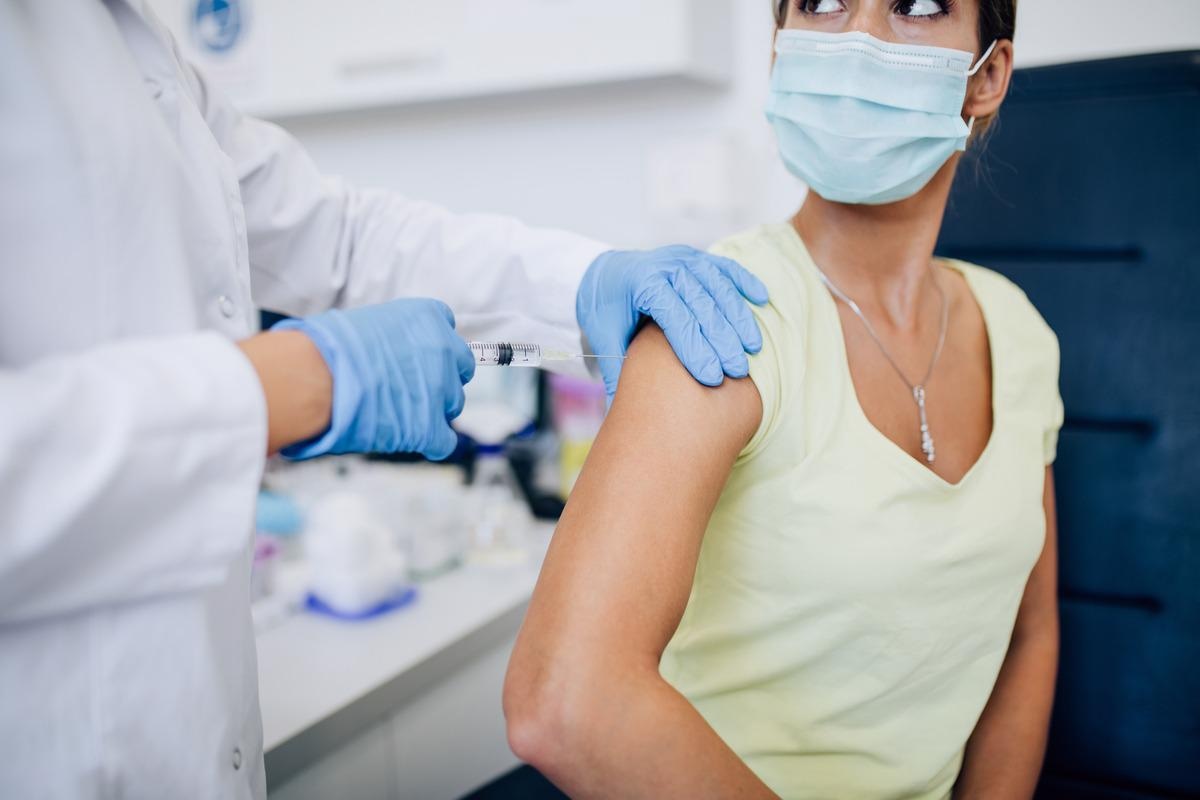Several past studies have shown that natural infection with severe acute respiratory syndrome coronavirus 2 (SARS-CoV-2) elicits protection against reinfection. The authors of a recent study posted to the medRxiv* preprint server investigated how vaccination, administered before or after the first coronavirus disease 2019 (COVID-19) infection, modifies the protective effect of the previous infection against reinfection.
 Study: Reinfection with SARS-CoV-2: outcome, risk factors and vaccine efficacy in a Scottish cohort. Image Credit: hedgehog94/Shutterstock
Study: Reinfection with SARS-CoV-2: outcome, risk factors and vaccine efficacy in a Scottish cohort. Image Credit: hedgehog94/Shutterstock

 *Important notice: medRxiv publishes preliminary scientific reports that are not peer-reviewed and, therefore, should not be regarded as conclusive, guide clinical practice/health-related behavior, or treated as established information.
*Important notice: medRxiv publishes preliminary scientific reports that are not peer-reviewed and, therefore, should not be regarded as conclusive, guide clinical practice/health-related behavior, or treated as established information.
Study design
The cohort study executed in Scotland used data from the Electronic Communication of Surveillance in Scotland database (ECOSS) and two alternative models - a Cox regression model with calendar timescale and another with tests as timescale. Using these models, they calculated and compared the rates of detected SARS-Cov-2 infection and hospitalized or fatal COVID-19 cases in the two cohorts separately for person-months at risk. Additionally, they estimated the efficacy of vaccination against reinfection while unvaccinated and when vaccinated with one and two dose(s).
Composition of cohorts
The cohort at risk of reinfection comprised 165,004 individuals, out of which 152,655 individuals were unvaccinated at the first positive test, and 9,725 and 2,624 had received one and two vaccine doses, respectively. The average follow-up time for this cohort was five months.
The researchers defined the entry and exit dates based on the Centers for Disease Control and Prevention (CDC) criteria. While the entry date was 90 days after the first positive test with restriction to cycle threshold (Ct) less than 33, the exit date was the earliest date of the first positive test, date of death, or end of the follow-up period (September 22, 2021). They adhered to the CDC criteria to identify all positive nucleic acid tests for SARS-CoV-2 in Scotland since March 1, 2020, and exclude possible false positives.
The comparison cohort comprised 1,177,827 individuals who matched the cohort at risk of reinfection in terms of age, sex, and general criteria. The average follow-up time for this cohort was 5.6 months. In this cohort, 1,132,118 individuals were unvaccinated when sampled for the first time.
Findings
In the cohort of risk at infection, 1,070 COVID-19 reinfections were detected while unvaccinated, out of which 28 individuals were hospitalized or fatal. For the same test parameters, the results of the comparison cohort showed 1,211 hospitalizations from a total of 36,488 detected reinfections.
Rates of reinfection and hospitalization were 6.8 and 0.18, respectively, per 1000 person-month. These rates were lower by 68% and 74%, respectively than in a matched cohort of individuals who had not previously tested positive. The average testing rate for unvaccinated individuals was lower in the comparison cohort (0.27 per month) than in the cohort at risk of infection (0.56 per month).
The researchers examined the relation of reinfection in fully vaccinated individuals to vaccination status at the first infection. In both the Cox regression model with tests as timescale and the calendar timescale, vaccination resulted in lower reinfection rates.
Within the cohort at risk of reinfection, 56 cases of reinfection were detected in individuals who were vaccinated (at least one dose) before the first infection, while 660 cases of reinfection were detected after the second dose of vaccine during follow-up in individuals who were unvaccinated at first infection.
The estimated efficacy of vaccination against reinfection using the model with calendar timescale was 64% for one dose of vaccine and 84% for two doses. The vaccination efficacy against hospitalized or fatal reinfection spiked to 71% after the second dose of vaccine was administered in individuals with the previous infection. In the test results using a Cox regression model, the rate ratio for detected reinfection after the second dose of vaccine in those vaccinated at least once before the first infection was 1.35 compared to those unvaccinated at first infection. The data show that hospitalization and fatal reinfections were associated with older age and clinical risk conditions.
Strengths, limitations, and conclusions
The strength of this study was the availability of a large cohort of test-positive individuals whose electronic health records were accessible, which enabled the researchers to examine all detected infections in the populations in association with occupation. The main limitation of the study was sampling bias. The differential testing rates in the unvaccinated and the vaccinated individuals led to underestimating vaccination efficacy in the model with a calendar timescale.
The study’s findings align with previous reports suggesting that natural SARS-CoV-2 infection protects against reinfection and COVID-19-related hospitalization. The observations further suggest that combining the benefits of natural infection with vaccination elicits maximum protection against SARS-CoV-2 reinfection, and prior vaccination does not impair this protection.

 *Important notice: medRxiv publishes preliminary scientific reports that are not peer-reviewed and, therefore, should not be regarded as conclusive, guide clinical practice/health-related behavior, or treated as established information.
*Important notice: medRxiv publishes preliminary scientific reports that are not peer-reviewed and, therefore, should not be regarded as conclusive, guide clinical practice/health-related behavior, or treated as established information.